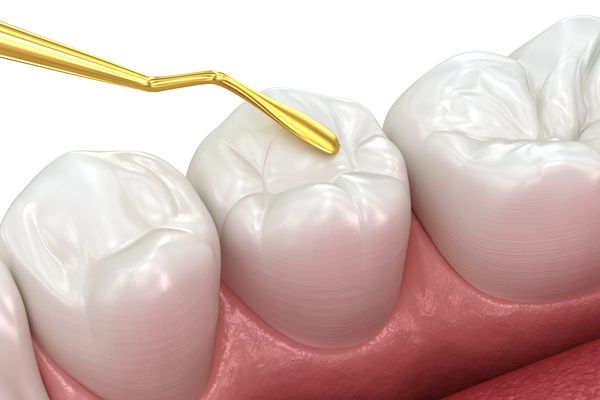Do I Need a Referral for Endodontic Treatment?

Root canal treatment, or endodontic treatment, can be done by both a general dentist and an endodontist. As the name suggests, endodontists are specialist dentists that treat problems affecting the inner tooth. This makes them more than qualified to perform all sorts of procedures on the inner tooth, including a root canal.
And yet, many general dentists also perform root canals, which begs the question, when should a general dentist perform a root canal and when should you, as a patient, get a referral to see an endodontist?
The answer comes as we cover a few basics.
What is root canal treatment?
To put it simply, a root canal is a dental procedure that removes dead or dying tissue in the inner tooth, while keeping the outer tooth intact. The point of endodontic treatment is to treat a tooth that is too far gone for other kinds of treatment. A root canal allows a patient to keep the outer part of their tooth, as opposed to having the tooth extracted.
This is a good thing since the patient is still able to smile and chew with the treated tooth. The tooth also keeps the rest of the person's teeth from shifting, like they would if it were extracted. So a root canal is a great way for a person to avoid the problems that come with a missing tooth, including expensive tooth replacement treatments.
What are the signs that a patient needs endodontic treatment?
Although it can be painless and sometimes, hard to notice, a dead or dying tooth often comes with symptoms that are hard to miss, such as:
- Tooth discoloration behind the enamel that ends up looking like a dark shadow in the tooth
- Excruciating pain if the dead or dying tooth is because of an infection
- If the dead tooth is caused by an infection, a person may notice a bad smell coming from the tooth
- Pus coming out of the tooth due to infection
Anyone who notices these symptoms should see a dentist immediately. Based on their findings, the dentist will either treat the tooth themselves or refer the patient to a specialist.
When does a patient need a referral?
A general dentist may choose to perform a simple or routine root canal. This implies that there are situations that will need the intervention of a specialist. Situations like:
- A general dentist that chooses to refer all endodontic treatments to an endodontist
- A patient that needs a second root canal on the same tooth after the first root canal failed
- A person with complicated tooth anatomy that needs treatment from a specialist. Complicated tooth anatomy is a common reason why root canals fail the first time around
- An insurer that requires that patients get a referral before they see an endodontist
A skilled dentist will guide you through treatment for your problem tooth
The role of a dentist is to make sure their patients get the highest level of care. For this reason, they will treat what they can and call in a specialist for matters that require their expertise.
Call our Lake Forest clinic to set up an appointment and get your problematic tooth treated, once and for all. Our endodontist has lots of experience performing root canals.
Let's get started…
Request an appointment here: https://stunningsmilesoflakeforest.com or call Stunning Smiles of Lake Forest at (949) 258-7433 for an appointment in our Lake Forest office.
Check out what others are saying about our services on Yelp: Read our Yelp reviews.
Recent Posts
Dental sealants are a great preventive and protective general dentistry measure that can be used for both children and adults. They protect the teeth against cavities and the effects of bruxism, which both can lead to tooth decay and eventual loss. Ready to find out how?Below is an overview of dental sealants, including what they…
Teeth whitening is one of the most common cosmetic dentistry procedures, giving people a fast and affordable way to improve their smile. Almost everyone who chooses teeth whitening will notice moderate to significant improvement in the whiteness and brightness of their smile. Teeth whitening involves removing stains and discolorations from the teeth.Whitening treatments are customizable…
Implant dentistry procedures have the highest rate of success among all the options available for replacing missing teeth. The process of replacing a single missing tooth is straightforward and involves using an implant as artificial tooth roots and supporting it with a dental crown. Continue reading to learn how the process works.Regardless of the number…
Partial dentures are a great way to improve your smile, oral health, and ability to function by replacing missing teeth. It is helpful to have a full understanding of what partial dentures are and why they are often the more preferable treatment solution for patients to decide if treatment is right for you.This review defines…


